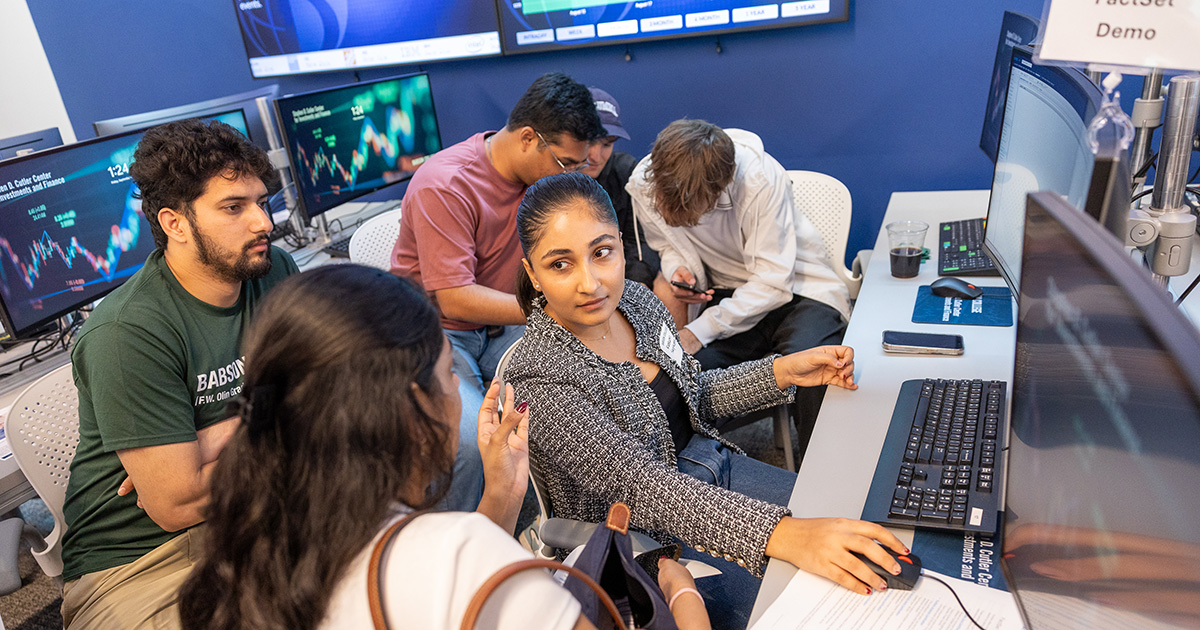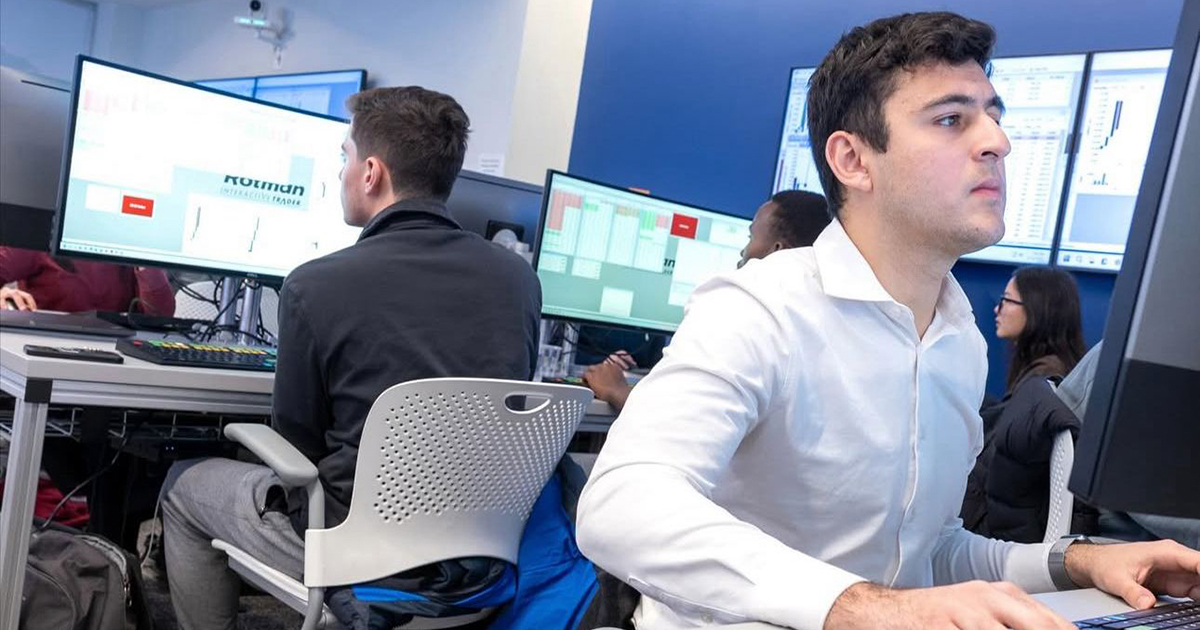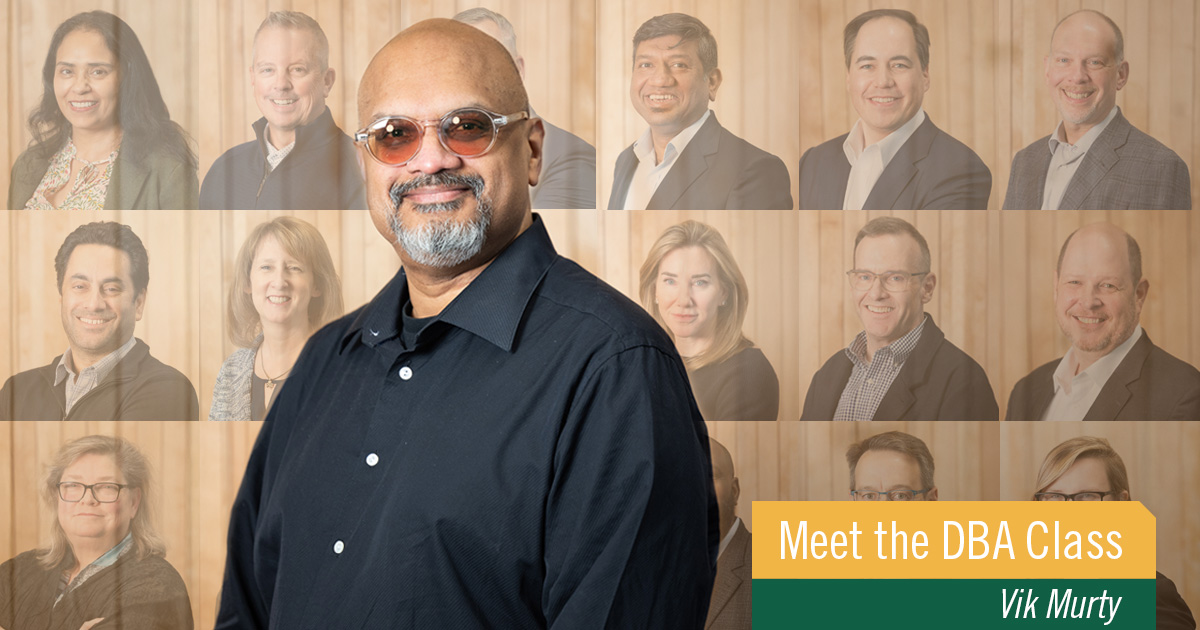Why Entrepreneurship Is Key to Lifelong Happiness
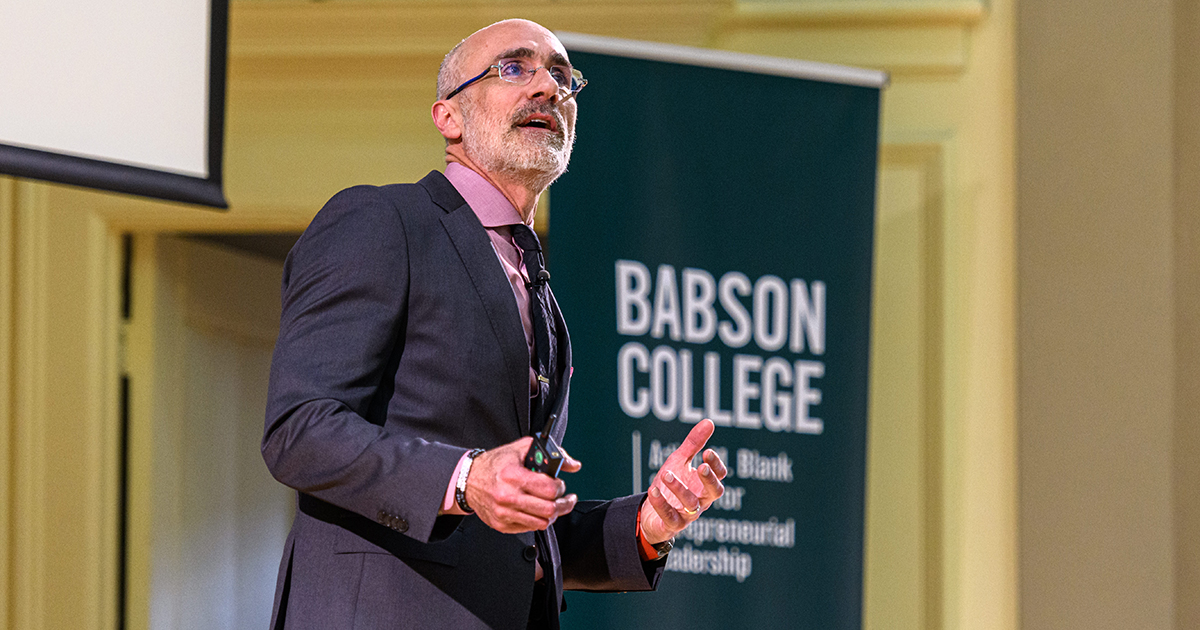
Bestselling author and acclaimed social scientist Dr. Arthur C. Brooks had just started detailing how Babson College students, staff, faculty, parents, alumni, and entrepreneurs of all types can maintain happiness throughout their lives when he began talking turkey—both literally and metaphorically.
“In the next few minutes, I’m going to introduce to you the incredible world of neuroscience and social science and human happiness. And, if I do my job, you’re going to have a 401(k) plan for your happiness. Just like I have one for me,” Brooks said during a nearly hourlong discussion on campus Tuesday night.
The free presentation, which packed Knight Auditorium, was hosted by the Butler Institute for Free Enterprise Through Entrepreneurship.
Brooks, who writes a regular column for The Atlantic about happiness and loneliness in the pandemic era, went on to compare happiness to a well-balanced Thanksgiving meal of pumpkin pie, mashed potatoes, and, of course, turkey.
“Now, why do I bring that up? Because that’s a good metaphor for happiness. All foods are made up of three micronutrients—fat, carbohydrates, and protein,” he said. “Happiness requires three macronutrients in abundance and balance. They are enjoyment, satisfaction, and purpose.”
The vivid Thanksgiving imagery captured the imagination of Amanda Blein, a prospective Babson student from Haiti who came to the event with her mother and sister.
“I never really thought about it like that, but when he said it, it made sense,” said Blein, who stuck around after the event to have a free copy of Brooks’ newest book signed. “We really need that balance of everything to have it together.”
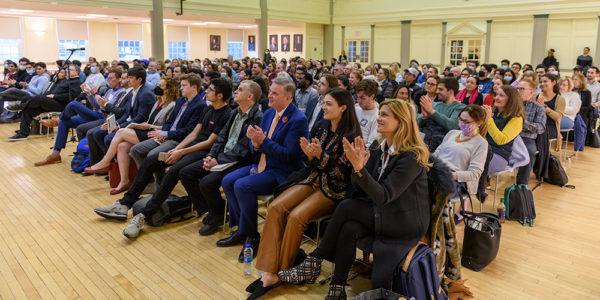
An audience of students, faculty, staff, and others packed Knight Auditorium to hear Dr. Arthur C. Brooks speak about happiness.
The Importance of Entrepreneurship
Brooks’ bestselling book—From Strength to Strength: Finding Success, Happiness and Deep Purpose in the Second Half of Life—examines what makes most people happy and what they need to do to cultivate happiness as they get older. A big part of his answer involves innovation and entrepreneurial skills.
“Throughout the course of my career as an academic, I’ve studied entrepreneurship. It’s something that’s critically important to me because it’s important to all of us. For those of you who are Americans like me, it’s central to the DNA of this country,” Brooks said. “The idea of opportunity and boundless adventure, that’s central to entrepreneurship. And, I think one of the most important characteristics, the most important ingredient of entrepreneurship is happiness.”
“The idea of opportunity and boundless adventure, that’s central to entrepreneurship. And, I think one of the most important characteristics, the most important ingredient of entrepreneurship is happiness.”
Arthur C. Brooks, bestselling author and acclaimed social scientist
Brooks spent much of his presentation breaking down those three key ingredients for happiness. Enjoyment, he said, is more than sheer pleasure, it’s a well-earned pleasant experience shared with those closest to you. While success, he said, is actually about wanting less. Otherwise, you’re constantly focusing on things you don’t have, instead of embracing the things you do.
“This will not come naturally,” Brooks said. He tries to cross off things from his so-called bucket list every year, not by doing them, but by letting them go. “I make a strategic plan to free myself from those attachments, and if you do this, it will change your life.”
Finding Purpose in Business
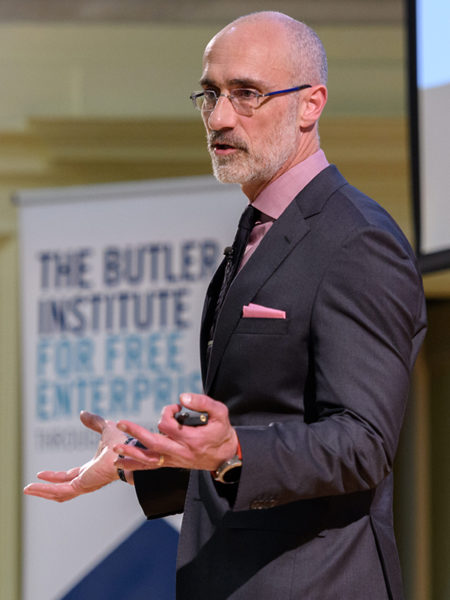
Dr. Arthur C. Brooks discusses happiness and entrepreneurship during his presentation at Knight Auditorium.
This wasn’t the first time that Brooks’ work has been discussed on Babson’s campus. Andrew Corbett, the Butler Institute’s faculty director who introduced Brooks on Tuesday night, held a screening and student discussion about Brooks’ documentary, The Pursuit, at the Sorenson Center for the Arts in 2020. The film details the positive role of free enterprise and capitalism in the fight against poverty.
Brooks’ beliefs, also detailed last night and throughout his 11 books, dovetail with those of the Butler Institute, created in 2020 thanks to the family of John Butler ’52, P’84. The Butler Institute at Babson College explores the role of business in public policy—providing a space for businesses to work with government and society to find new ways of solving worldwide problems.
And, that’s where the final ingredient of happiness—purpose—gets a boost. Work can only provide a sense of purpose, Brooks said, if it’s meaningful. That means accomplishments and hard work are rewarded, and the job makes life better for others in some way.
“This is the reason I’m such an enthusiast for entrepreneurship and an enthusiast of the American free enterprise system, not because it’s perfect, but because it creates earned success,” Brooks said. “Nothing is better for deriving happiness from work than entrepreneurship and free enterprise.”
Posted in Community

